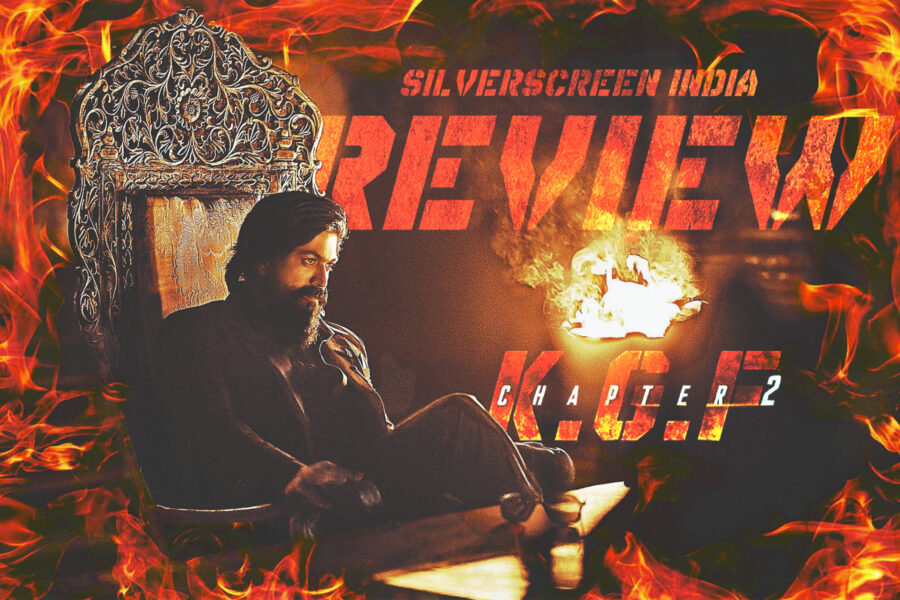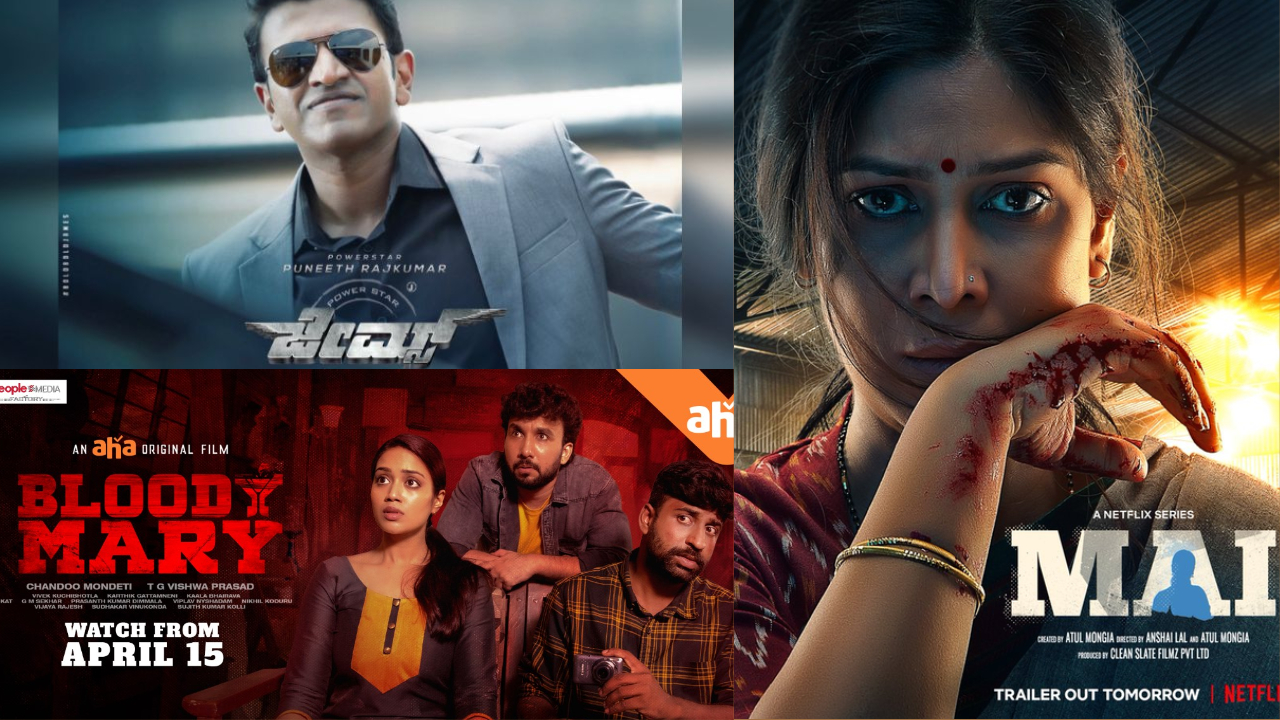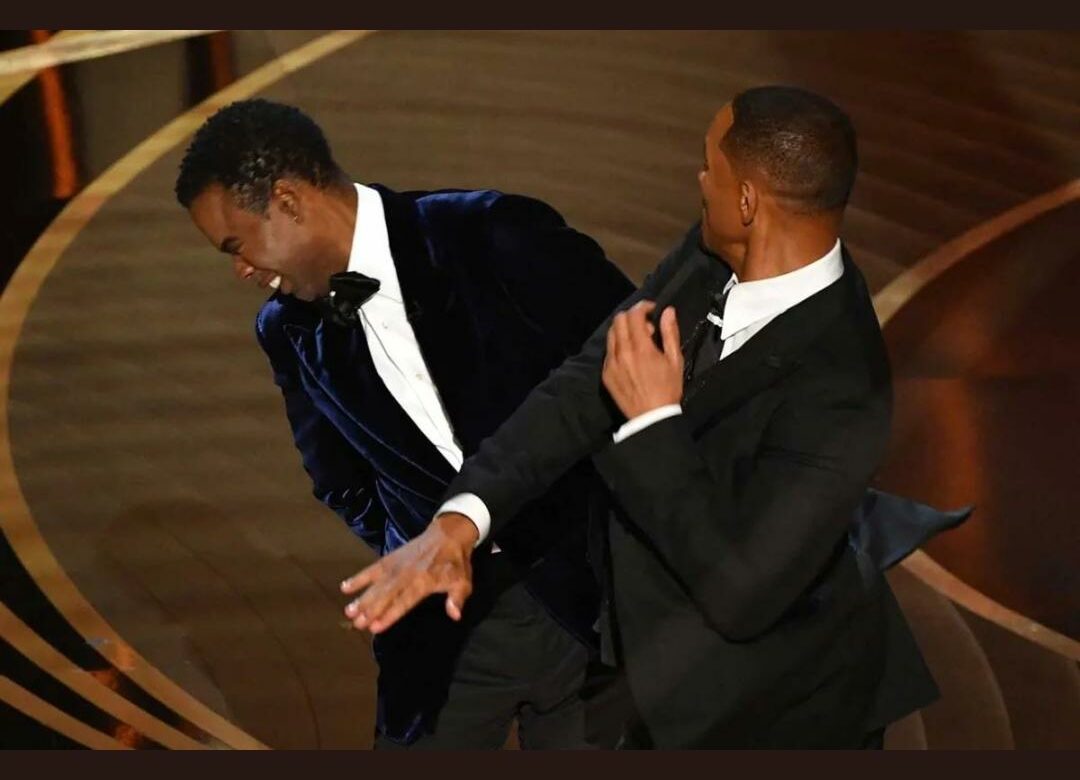Reena (Srinidhi Shetty, who leaves a mark as the barely-there love interest of a complicated man) is sweating, and she complains that the man who is keeping her hostage in the name of love, should do something about it. “Maniyammaa, appalam jaakiradhai,” warns Rocky (Yash) after making arrangements accordingly with one of his henchmen. Having seen many films where a brutish man pursues a woman, you understand the task at hand. You wait for an extravagant air-conditioning machine to appear, but Rocky Bhai has something entirely else on his mind. In a nutshell, this is what Prashanth Neel’s K.G.F: Chapter 2 is all about. Bigger beyond the viewer’s wildest dreams.
Is it always better? Well, definitely better than the first instalment. Characters like Adheera and Ramika Sen, played fabulously by Sanjay Dutt and Raveena Tandon, needed extensive writing. It is not that they aren’t scary enough. They are, but the intimidation comes from the actors, not the script. However, I cannot call this film under-written. If anything, it is the opposite – every scene is densely populated with characters. KGF 2 doesn’t know what a quiet moment is, and it is better for it. Armed with Ravi Basrur’s score, every instant vibrates with chaotic energy. It puts a willing viewer in a trance and keeps them there. For the first time in a long while, I enjoyed the whistles and hoots of the over-enthused. Don’t get me wrong, the film isn’t all about elevations and surpassing expectations. Beyond the chaos, there is order. Beyond the swag, there is substance.
“Kalaas” snickers Rocky while examining a Kalashnikov in a tense moment. While the filmmaker manages to distract us with wordplay, the callback that comes later is one of the best-executed pieces of filmmaking and writing in masala cinema. Even the violence, which gets numbingly excessive after a point, is handled with more thought than you expect in big films with big men holding big guns. The filmmaker foresaw the desensitisation, so he transforms the action sequences with thought and technique. While one chase sequence benefits from stylised editing, another mutes the sound and puts us in our shocked hero’s head, oblivious to the bloodshed going around him.
The world-building, in no small part thanks to the art department and Bhuvan Gowda’s camera work, is satisfyingly meticulous. Even the muted grimness is visually pleasing because of the way it is captured and utilised. Yash, too, does a beautiful job bringing this world alive. He is captivating as this pragmatic man whose well of affection for his mother is bottomless. The most vital thing an action superstar has to possess is conviction. To believe that he is the king of the world. To imbibe that belief with confidence enough to let him unironically walk into a room oozing swag. Yash seems to have it and then some.
I have my problems with the narrator. There are inconsistencies, and Prakash Raj, playing the son of Anand Ingalagi, is a smart choice – his voice adds heft, but his issue with his father lacks relevance and resolution. But, I have to admit, the peon that religiously listens to the story is an excellent proxy for the viewer. His enthusiasm is infectious, and the actor who plays him makes for a great hype-man. Even Eswari Rao’s mourning mother is an update on the trope. She is never begging but bargaining; give her closure and get her blessings.
Small touches like this don’t do much for the proceedings but affect your viewing experience immensely. Choosing to introduce Rao Ramesh’s character by having him address someone named Ramesh. A Kattappa-esque Vaanaram (a perfectly-controlled Ayyappa Sharma) whose loyalty lies with the place and not its people. “We had enough wars,” says Ramika Sen, the PM, before revising her plans for peace. “I don’t like violence,” says the hero who knows nothing else, thus establishing the idea that power begets violence and destruction. Again, it’s nothing and everything.
Recommended
A saying goes, “Powerful people come from powerful places.” The narrator disagrees and says, “History was wrong. Powerful people make places powerful.” Good thing that Rocky Bhai doesn’t believe in history. But I can’t entirely agree with the narrator. Rocky does come from a powerful place – his mother. A woman in her early 20s dreams big dreams for her son. She never thinks to question them, and neither does her son. He is never taught to question his ability or its limits, which is both a gift and a curse. This is how K.G.F: Chapter 2 wins and wins big. Instead of trying to find resonance with some myth or the other, it uses a bond as elementary as the one shared by a mother and her child and weaves a legend of its own.
*****
This KGF – Chapter 2 review is a Silverscreen original article. It was not paid for or commissioned by anyone associated with the movie. Silverscreen.in and its writers do not have any commercial relationship with movies that are reviewed on the site.



